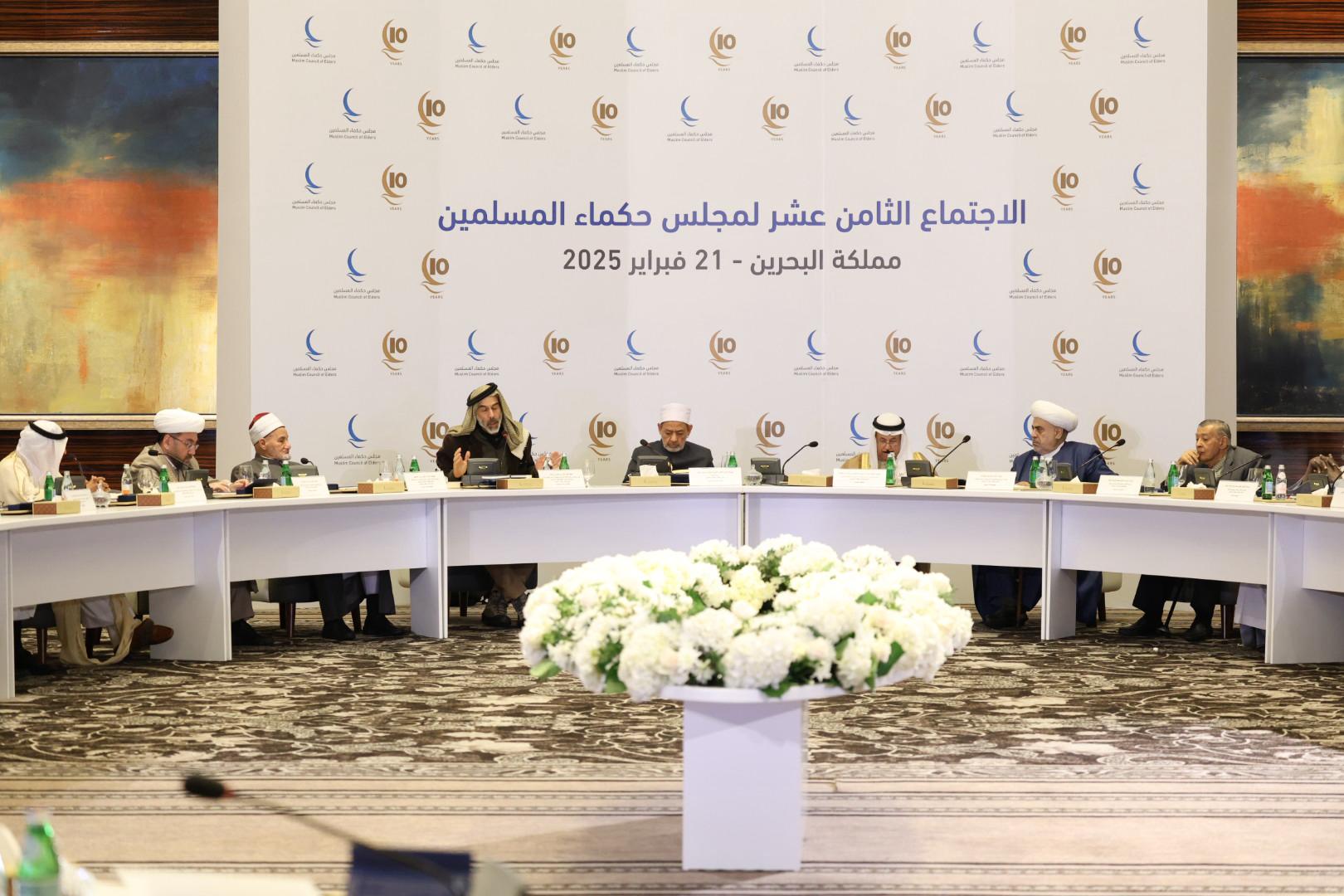Muslim Council of Elders: 11 Years of Promoting a Culture of Dialogue, Tolerance, and Human Coexistence
Today marks the eleventh anniversary of the founding of the Muslim Council of Elders, under the leadership of His Eminence Professor Dr. Ahmed Al-Tayeb, Grand Imam of Al-Azhar. The Council comprises a distinguished group of scholars, sages, and dignitaries from across the Muslim world—individuals known for their wisdom, integrity, moderation, and independence. Established on 21 Ramadan 1435 AH, corresponding to July 19, 2014, the Council was founded to promote peace, uphold the values of dialogue, tolerance, and human coexistence, support just causes across the Muslim world, strengthen unity, and amplify the role of religious leaders in addressing global challenges.
His Excellency Judge Mohamed Abdelsalam, Secretary-General of the Muslim Council of Elders, emphasized that since its inception eleven years ago, the Council has devoted its efforts to advancing peace, fostering human fraternity and mutual understanding, and highlighting the tolerant values of Islam in its engagement with others. He underscored the importance of dialogue, mutual respect, and interreligious understanding, as well as bolstering intra-Islamic dialogue to foster unity and solidarity. He also expressed the Council’s deep gratitude—on behalf of its chairman, members, and staff—to the United Arab Emirates and its wise leadership for their continued support of the Council’s initiatives to entrench the values of peace and coexistence.
As part of its mission to foster tolerance and peaceful coexistence, the Council launched a series of East–West Dialogue Rounds in cities such as Florence, Paris, Geneva, Cairo, Abu Dhabi, and Manama. These efforts aimed to realize the Council’s vision of promoting peace through mutual understanding and coexistence and enhancing dialogue between religions and cultures. These initiatives culminated in the historic signing of the Document on Human Fraternity in February 2019 by His Eminence the Grand Imam and His Holiness Pope Francis, Pontiff of the Catholic Church.
The Council also launched International Peace Convoys and Ramadan Missions, engaging communities across continents to strengthen ties with Muslims worldwide, promote enlightened and moderate thought, correct misconceptions, and encourage positive integration. These efforts also sought to counter hatred, racism, extremism, terrorism, and Islamophobia. Furthermore, the Council has organized numerous international conferences that explored themes such as peace, citizenship, diversity, coexistence, climate responsibility, and meaningful media discourse.
Recognizing youth as central to building a conscious and peaceful generation, the Council has launched a number of youth-focused initiatives. These include the Emerging Peacemakers Forum, the Global Student Dialogues on Human Fraternity, the Azadi Fellowship in Pakistan to promote interreligious and intercultural dialogue and counter extremism, the Ethics Education Fellowship to integrate universal values into childhood education, and the Bridges That Unite Us initiative to build volunteerism and instill the principles of dialogue, tolerance, and coexistence.
In 2019, believing in the power of the written word, the Council established Al-Hokama Publishing, a dedicated publishing house focused on producing and translating works that promote the values of tolerance and coexistence. To date, it has published over 250 works in more than seven languages. In 2020, the Council also launched the Al-Hokama Center for Peace Research, the first international, non-governmental research center of its kind, serving as a hub for knowledge and expertise in the service of peace in the Muslim world.
The Council’s regional offices have served as beacons of hope and platforms for communication and peaceful coexistence. Branches have been established in several countries, including Indonesia, Pakistan, Malaysia, and Kazakhstan, to build effective platforms for engagement with Muslim communities around the world.
With climate change among the most urgent challenges of our time, the Muslim Council of Elders has led exceptional efforts to protect our planet. These include organizing the Southeast Asia Religious Leaders Conference on Climate, the Global Summit of Religious Leaders for Climate in Abu Dhabi—which led to the issuance of the landmark “Call of Conscience: The Abu Dhabi Joint Statement on Climate”—as well as establishing the first-ever Faith Pavilion at a UN Climate Conference during COP28 in Dubai. The Council also co-organized the Global Summit of Religious Leaders for Climate in Baku, Azerbaijan, and will co-host the Faith Pavilion at COP29.
The Council has also continued to champion the causes of the Muslim world and laid the foundation for a new phase of intra-Islamic dialogue, following the call of the Grand Imam at the Bahrain Dialogue Forum to strengthen Islamic unity. A delegation from the Council visited Iraq and met with diverse religious and societal groups to address pressing Islamic issues, promote reconciliation, and strengthen the bonds of religious fraternity. Additional meetings were held with leading scholars and authorities from various Islamic schools of thought.
On February 19–20, 2025, the Kingdom of Bahrain hosted the first edition of the Intra-Islamic Dialogue Conference, under the gracious patronage of His Majesty King Hamad bin Isa Al Khalifa. The conference was attended by the Grand Imam and over 400 scholars, thinkers, and religious authorities representing various Islamic traditions. The event concluded with the launch of the Call for the People of Qiblah, a foundational charter of principles designed to enhance dialogue and understanding among the diverse schools of Islamic thought.
Year after year, the Muslim Council of Elders continues to uphold and spread universal human values—affirming the importance of dialogue, tolerance, mutual respect, and acceptance of others; protecting religious symbols and sanctities; presenting the true image of Islam; confronting hate speech, extremism, and Islamophobia; and strengthening ties with Muslim communities worldwide—in pursuit of a more peaceful and compassionate future for all humanity.

